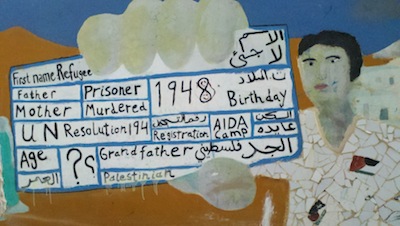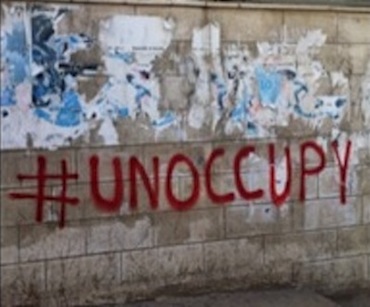I arrived in Ramallah well prepared . . . or so I thought. I’d read Saree Makdisi’s chilling portrait of Palestinian life under occupation, historical accounts by Rashid Khalidi, Walid Khalidi, Ilan Pappe, Nur Mashala, and Gabriel Piterberg, powerful critiques of Israeli apartheid leveled by Ali Abunimah, Omar Baghouti, and Uri Davis, exposés penned by Israeli journalists Amira Hass and Gideon Levy, as well as pro-Zionist voices such as Amos Oz and A.B. Yehoshua. I had Edward Said by my side, and the Electronic Intifada and the Palestine Monitor in my web browser. Our small delegation, formed at the behest of the U.S. Academic and Cultural Boycott of Israel, consisted of some of the smartest people I know, their collective knowledge of the situation surpassed only by our hosts at Birzeit University in Ramallah. We were there on a fact-finding mission.
Tag: Al-Nakba
One Occupation
j. kehaulani kauanuiWhen reflecting on the week-long visit to Occupied Palestine and Israel – the delegation organized by the US Campaign for the Academic and Cultural Boycott of Israel (USACBI) – in some ways, the meeting that was the most provocative was with the Palestinian academics who hosted us at a public policy research center in Haifa called Mada al-Carmel: Arab Center for Applied Social Research. There we encountered critical and incisive perspectives on the academic boycott by Palestinian citizens of Israel that showed how the politics look different from their social location. Their penetrating critiques and our productive dialogue ultimately strengthened my understanding of the situation of fragmentation on the ground in Palestine, and of the need to grapple with this complexity to address what is, after all, one occupation.



